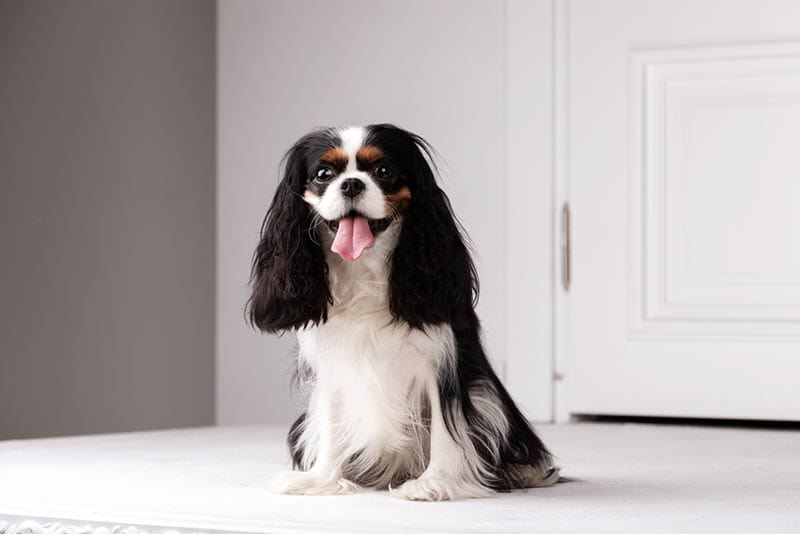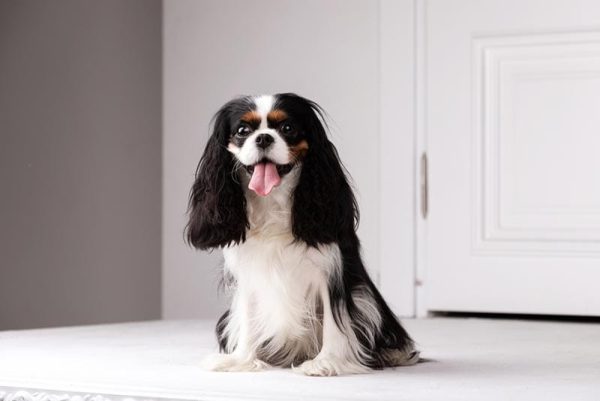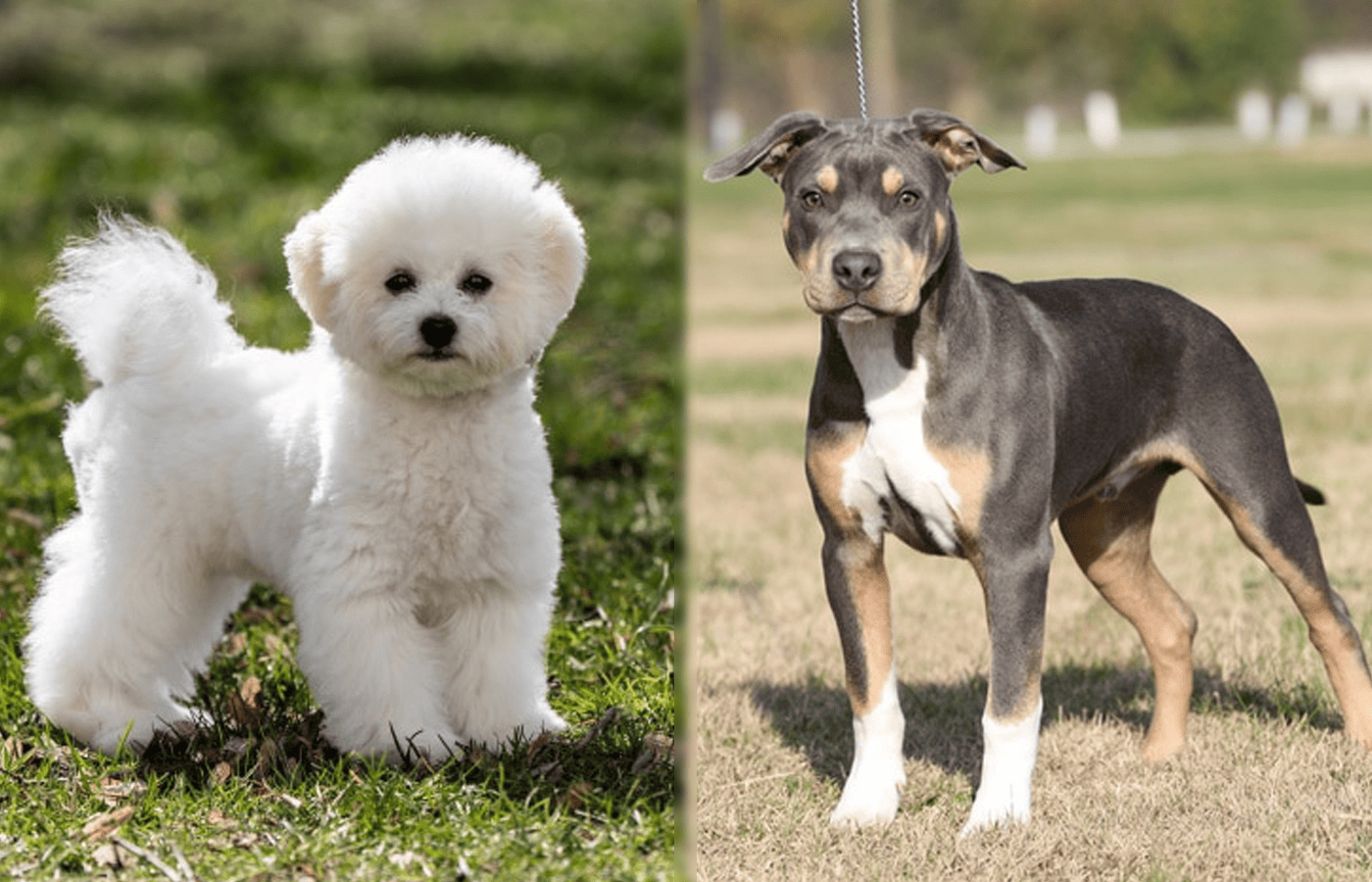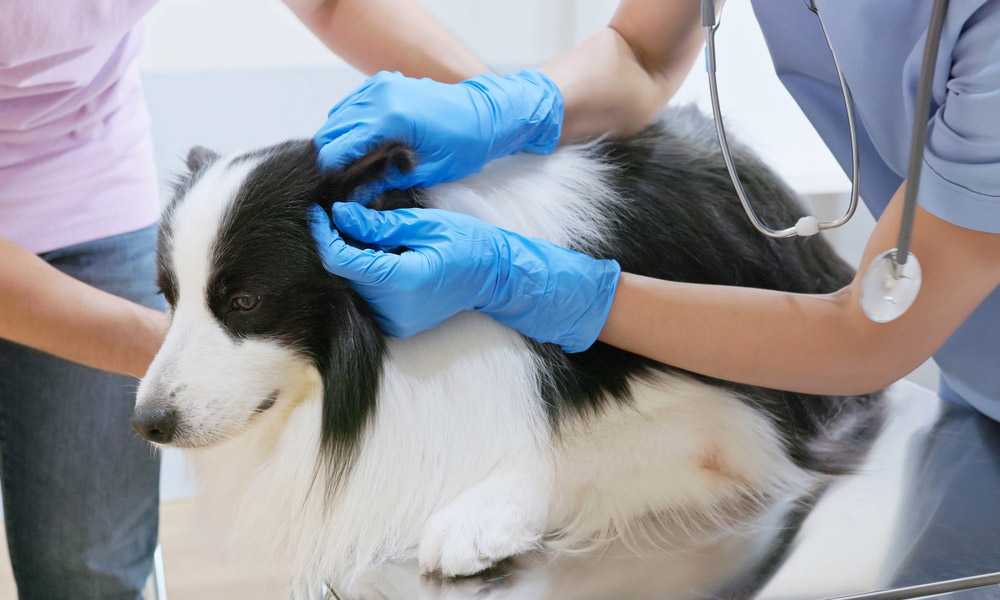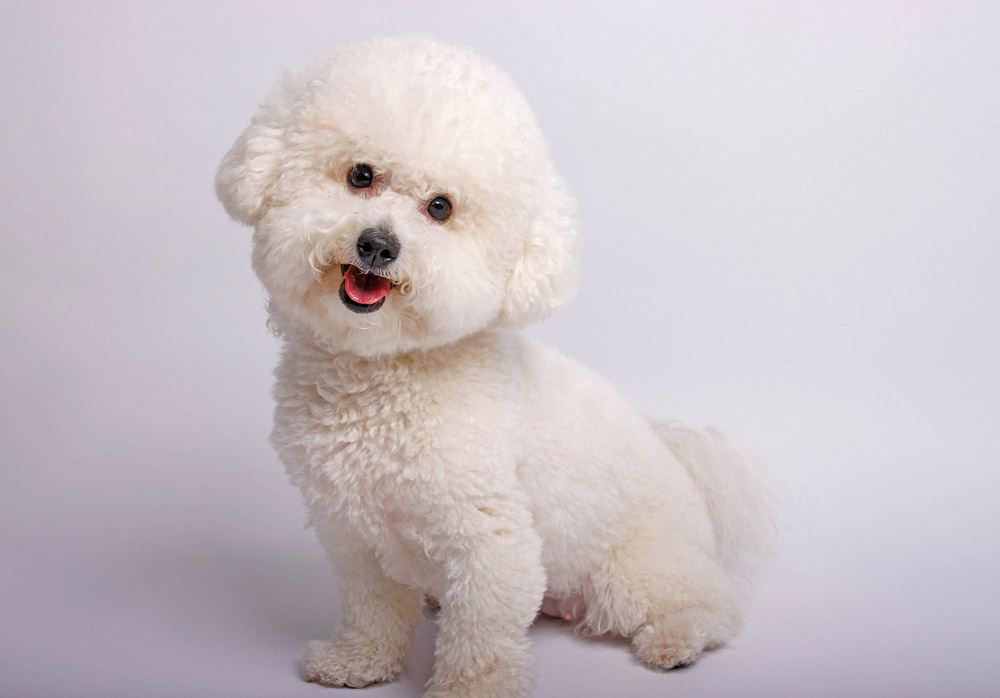Click to Skip Ahead
The Cavalier King Charles Spaniel (also known as CKCS) is a sweet, affectionate dog that makes an excellent pet. These small spaniels are playful and active, making them great companions for first-time dog owners or busy individuals who want to get out and exercise more.
But like any breed, the CKCS comes with pros and cons. So, before you adopt one, you should understand what owning this type of spaniel entails. This guide will detail the important factors that you need to know about these wonderful dogs before you make the decision to bring one home for your family.
The Pros of Cavalier King Charles Spaniels
1. Great for Many Purposes
CKCS are beautiful dogs with balanced and affectionate personalities. They not only make great family pets and are great with kids, but they also make excellent therapy dogs. If you’re looking for a relaxed lap dog for those evenings and/or one that doesn’t require a lot of daily activity, consider this breed.
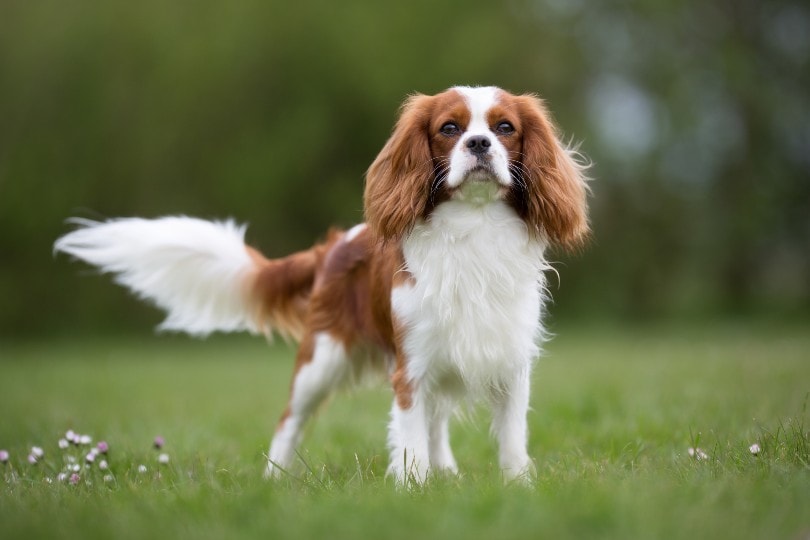
2. Easy to Groom
These dogs are also easy to groom. Although they are a double-coated breed, they don’t shed an incredible amount of dander. This is a plus if your dog doesn’t shed much because you won’t have to clean up much hair. Talk about easy maintenance!
3. Easy to Train
CKCS are super intelligent, which makes them easy to train. They’re quick thinkers and are always eager to please their owners. This makes them a great dog for first-time owners or owners who have more than one dog to take care of.
4. Don’t Need a Lot of Exercise
These spaniels are relatively easy to care for when it comes to daily activity. They don’t need to be taken for long runs or walks, so they’re great for people who don’t have the time or energy to commit to a long walk each day. You can simply let them run around the house with their toys or out in the backyard. Walking them for about 20–30 minutes a day is always good.
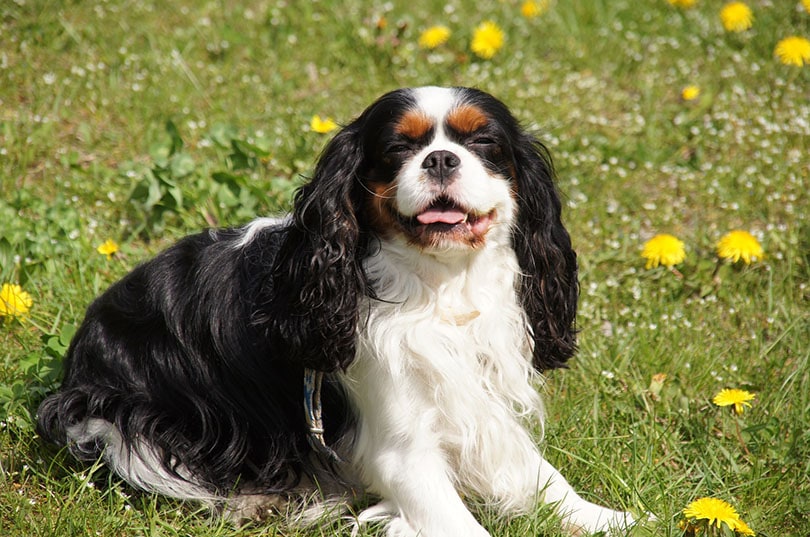
5. Easy-Going Personality
CKCS aren’t typically or overly aggressive and generally have a laidback personality, something that makes them popular with older owners. They’re affectionate pets and make for the perfect lap dog. They’re also good for low-mobility owners.
The Cons of Cavalier King Charles Spaniels
1. Heat Intolerance
The CKCS doesn’t do well with extreme heat or humidity. They’re sensitive to weather conditions and can get sick if they’re left outside in extreme temperatures.

2. Not Really Swimmers
Some dog breeds will take to water as easily as fish—this is not that breed. Although CKCS can definitely be trained to swim, their bodies don’t necessarily make it easy for them. So, these dogs won’t be the most active swimmers. Don’t expect your pet to be too eager to stay in the backyard swimming pool for extended periods of time.
3. Short Muzzles
These spaniels have a short muzzle, which means they’re prone to chronic short breath and other respiratory issues. They also have a low exercise threshold, due to breathing issues that may develop.
The severity of this may vary from dog to dog, which is why it’s important to always take your pet for a yearly check with the veterinarian. If you are someone who likes to take your dog on long daily hikes and walks, this may not be the breed for you.
Should You Adopt a Cavalier King Charles Spaniel?
Cavaliers make great pets for many different types of people. If you’re interested in adopting a CKCS, there are a few things you should consider first.
Cavaliers have a low exercise threshold, which means they don’t need much exercise. Still, can you provide your dog with the amount of exercise that they need? Can you walk them regularly? These dogs also like to sleep with their owners. This can be problematic if you have a partner who doesn’t like dogs sleeping in the bed.
CKCS have a short muzzle, which makes them prone to respiratory issues. Can you take your dog to the vet regularly for wellness checks?
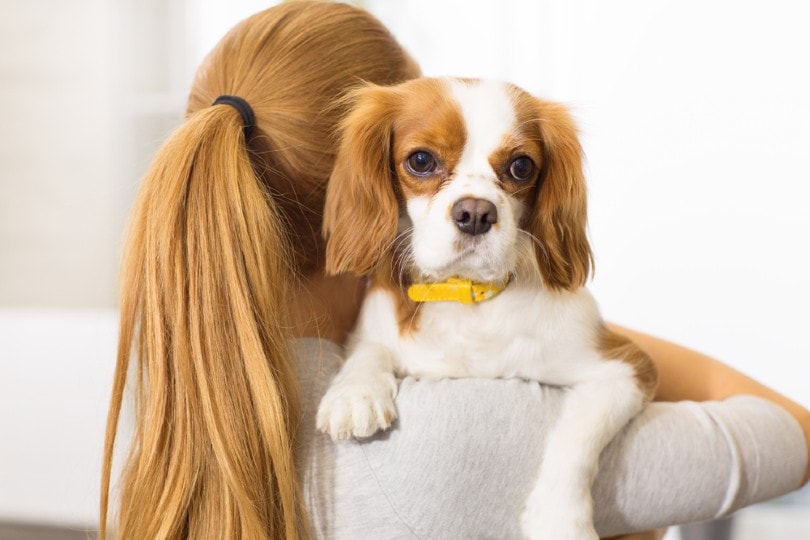
How to Find a Reputable Cavalier King Charles Spaniel Breeder
Many people choose to buy Cavalier King Charles Spaniels from reputable breeders. If you can’t find one in your area, your next best bet is to look for a CKCS rescue organization or shelter. You can also look for a breed rescue organization if you decide to adopt a dog that isn’t a CKCS.
Here are a few things to keep in mind when looking for a rescue organization or shelter:
- Reputable rescue organizations and shelters screen potential owners. This means you’ll likely have to provide documentation proving that you’re a suitable owner before the organization will let you adopt a dog.
- They are careful about where their dogs go. They usually only adopt dogs to people in the same state. If you want to adopt a dog from a rescue organization in another state, you’ll have to make arrangements to fly or drive the dog home with you.
- Reputable rescue shelters are happy to answer your questions. If they don’t respond to your emails, phone calls, or letters, you may want to find another organization that has more professional staff and follow-up procedures.
The Top 8 Most Fun Facts About Cavalier King Charles Spaniels
- This breed was developed by crossing other dogs to create a spaniel that would be small enough for ladies to carry in their laps.
- The Cavalier King Charles Spaniel is the smallest of the spaniel breeds. Spaniels were bred for hunting different types of game birds, such as pheasants, quail, and partridges.
- Small spaniel breeds like the Cavalier King Charles Spaniel are ideal for hunting game that is closer to the ground, such as rabbits.
- The Cavalier King Charles Spaniel was named after the king of England during the 17th century, King Charles II.
- The breed became popular in England during the 17th and 18th centuries, actually becoming the most popular dog in England at one time.
- To ensure that the breed would stay small, the breeders only paired small male dogs with smaller female dogs.
- Focused breeding programs in England worked and produced unique traits in the breed. These included an undershot jaw, a round head, and eyes that are close together.
- The breeding programs that created the unique traits in these dogs also resulted in a low population, which led to the breed almost becoming extinct after World War II.
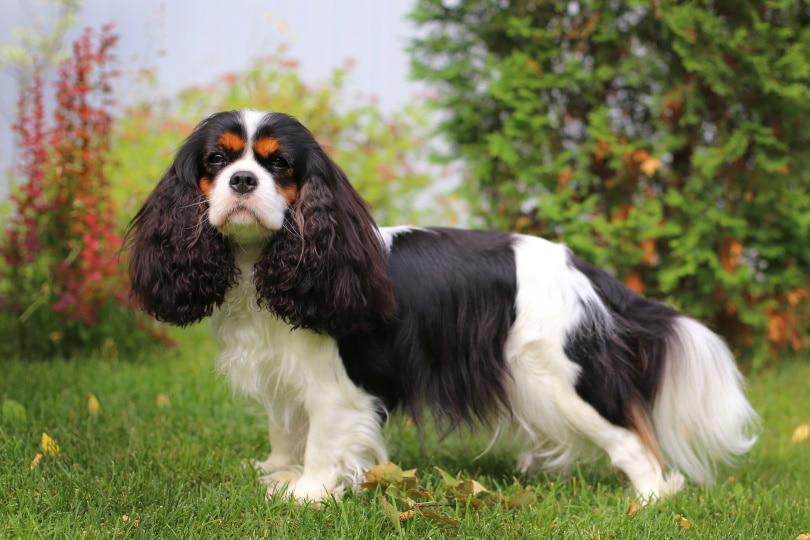
Frequently Asked Questions
As you can see, there’s a lot to consider before adopting a Cavalier King Charles Spaniel, but if you’re interested in adopting a dog, the CKCS is a great choice. Here are a few common frequently asked questions regarding these pups:
Are Cavalier King Charles Spaniels good dogs for children?
Yes! Cavaliers are great dogs for families with children. They adore being around kids and are gentle and affectionate.
How much exercise do Cavalier King Charles Spaniels need?
They need about 30 minutes of exercise a day. If you live in a hot or humid climate, you may need to exercise them indoors more often.
How much grooming do Cavalier King Charles Spaniels require?
They require little grooming. You should brush their teeth once a week and bathe them as needed.
What is the average lifespan of a Cavalier King Charles Spaniel?
They live an average of 12 to 16 years.
Conclusion
The Cavalier King Charles spaniel is a versatile breed that excels in many settings, including at home as a family pet, companion, and therapy dog. This breed is intelligent and makes a great pet for anyone who wants an energetic, highly social, and fairly active dog.
They can thrive on a routine schedule but also enjoy a more laidback approach. As an only-dog family member, they will appreciate a canine companion but may not do well with cats or other pets. The other downside is that they don’t do well in very hot or cold temperatures, especially when the thermometer falls below freezing, and they may have respiratory problems due to their short snout.
Featured Image Credit: Svetlanistaya, Shutterstock

